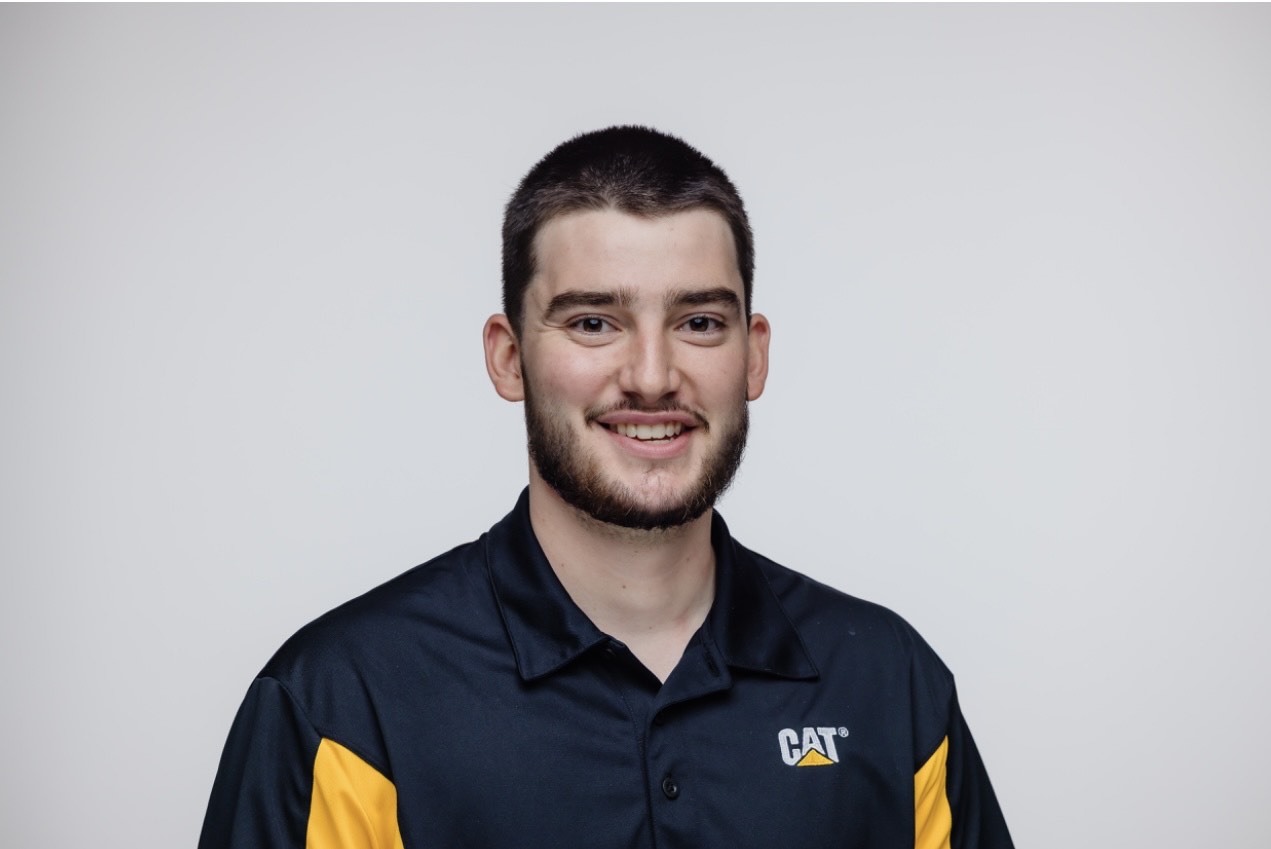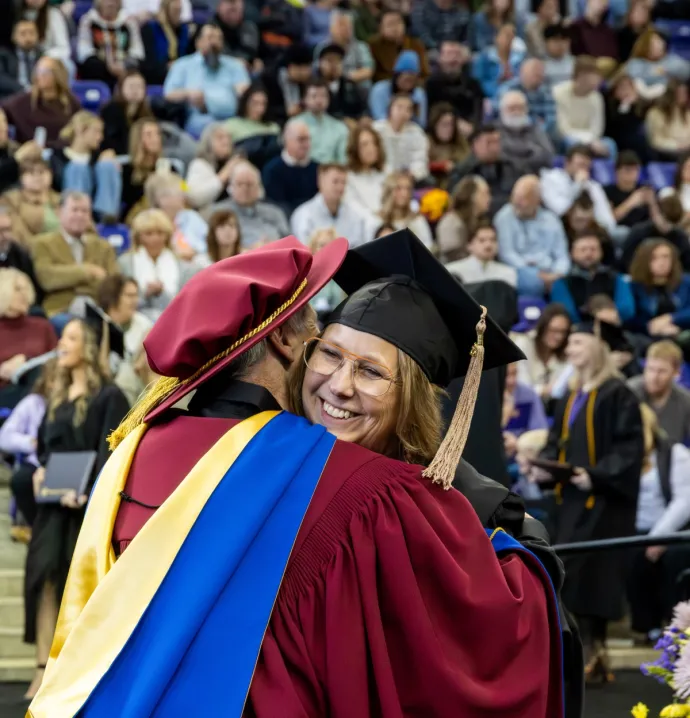UNI degree sets supply chain analyst Cole Wilkin apart
UNI degree sets supply chain analyst Cole Wilkin apart

In his role as a supply chain analyst at Caterpillar, Cole Wilkin stands out. While he’s surrounded by professionals with engineering and master’s degrees from big schools across the country, he believes his bachelor’s in supply chain management and business administration from the David W. Wilson College of Business were crucial to him getting his current position.
“I have zero regrets going to UNI,” said Cole Wilkin. “I am surrounded by a lot of alums from big supply chain schools, and I feel like the experience I got from the community, the involvement and the opportunities makes me really happy with my decision. I'm proud to be an alum.”
On a daily basis, Wilkin works with 35-40 suppliers to address issues they report, such as difficulties in sourcing components. He assesses the potential impact on Caterpillar, which may be immediate or lead to ripple effects felt years later.
“My goal is to use data and analytics to mitigate the risk to Caterpillar,” he explained.
Although he has been in his role for less than a year, Wilkin has already proven he is ahead of many of his peers thanks to his UNI education. As a student, there were numerous times when professors would bring in a product and instruct him to determine that product’s components and the suppliers those components could be purchased from at a cost-effective price.
“It's very similar to what I do in my job now,” he said. “A part might be broken and we don’t have a preferred supplier, and I have to figure out how to source the replacement. A lot of the things I do now I learned in class, talking to Andy Anderson about how to source different components by reading a print and a bill of materials. I came into my job, and they're expecting they’re going to have to teach me this, but I did it three times in college, so that was very good project experience.”

I came into my job, and they're expecting they’re going to have to teach me this, but I did it three times in college, so that was very good project experience.
Wilkin was heavily influenced by his professors at UNI. In addition to Anderson, he formed close relationships with Dan Beenken and Mark Winburn. These relationships were a highlight of Wilkin’s UNI experience.
“I was emailing one of my previous professors last night. The opportunity to have a one-on-one relationship with professors and build a lasting relationship where I can call on them if I'm having a work problem or even a personal problem and have that relationship for years to come is invaluable,” said Wilkin. “If I had gone to a bigger school, I wouldn’t necessarily have gotten that.”
The business core curriculum in the Wilson College of Business was also hugely beneficial to Wilkin’s experience. Through this requirement, he was able to get a background in numerous areas of business rather than just his majors.
“That helped me build the groundwork,” he said. “I might start in supply chain for the first few years of my career, but eventually, I'd like to be in a management role or be in a position that deals with finances and budget management. Having that foundation just sets you up better than some other schools might.”
Through his education, Wilkin strengthened his understanding of analytics. He was also able to learn how to present himself in a professional manner, a skillset that he believes helped secure him a competitive offer from Caterpillar.
“Those soft skills are a big emphasis in the business 1000- and 2000-level courses at Wilson,” said Wilkin. “That’s a big part of my role right now. I talk to people out on the floor every day, as well as executives and small business owners. I’m able to successfully have those different conversations thanks to the emphasis on soft skills at UNI.”
Wilkin’s position is rotational, meaning that over the next few years he will hold numerous positions at various Caterpillar locations. No matter where his rotations might take him, Wilkin loves knowing his work is making a positive difference for others.
“We have a real impact on the world,” said Wilkin. “We make large mining trucks that are used across multiple continents. They're mining for ores to help grow infrastructure and provide resources used to develop new technology. So it’s very, very exciting to be here and to be a part of it.”




